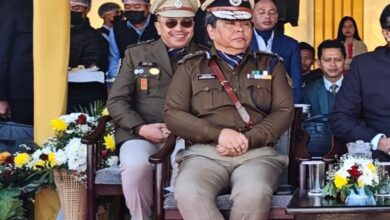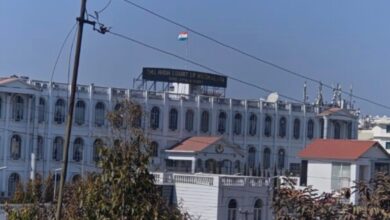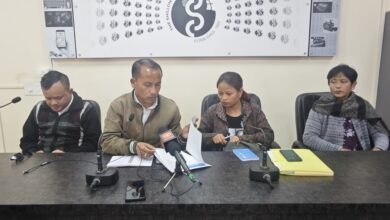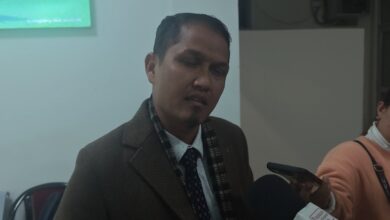
Shillong, May 22: RTI activist and lawyer Napoleon Mawphniang has alleged denial of inspection of documents related to Lakadong Turmeric Project by Meghalaya Basin Development Authority(MBDA).
A statement issued by the RTI activist said that the responses he received or rather, the absence of substantive responses paint a troubling picture.”Document inspection rights were denied. Delays extended far beyond statutory limits. Claims of administrative burden were deployed to avoid accountability. Statistical achievements were trumpeted without providing the evidentiary infrastructure that would render these claims verifiable”, he said.
Full text of the RTI activist below
“A battle for transparency unfolds not with swords but with words, not with violence but with the persistent pursuit of truth.
Today, I confirm that my formal complaint regarding the Lakadong Turmeric Project has been delivered to the highest authorities in our land. The document details systematic patterns of opacity, procedural obfuscation, and institutional resistance to legitimate public scrutiny that I encountered while seeking information through the Right to Information Act.
“The silence of bureaucracy is not the absence of sound, but the presence of power refusing to account for itself,” I noted in my submission. This silence has persisted despite multiple attempts to engage with the Meghalaya Basin Development Authority through established legal channels.
The issues raised are not mere administrative oversights but reflect a governance philosophy that treats transparency as a threat rather than a foundation of democratic legitimacy. When institutions choose secrecy over openness, they betray not just legal obligations but the very principles that give them authority.
My complaint emerged not from adversarial animus but from civic concern-a recognition that the patterns revealed suggest not isolated administrative failures but systematic governance deficiencies that undermine public trust and institutional credibility.
The RTI responses I received or rather, the absence of substantive responses-paint a troubling picture. Document inspection rights were denied. Delays extended far beyond statutory limits. Claims of “administrative burden” were deployed to avoid accountability. Statistical achievements were trumpeted without providing the evidentiary infrastructure that would render these claims verifiable.
“Numbers without evidence are not statistics but incantations-magical formulae designed to conjure the appearance of achievement without its substance,” I observed in my analysis of the responses received.
Perhaps most concerning was the ecological amnesia evident in the project’s execution. Despite the existential threat that climate change poses to agricultural
sustainability in our region, the RTI responses revealed no soil conservation measures, no water retention infrastructure, no climate-resilient farming strategies.
“Ecological neglect in agricultural governance is not merely administrative oversight but intergenerational violence,” I noted, highlighting the long-term implications of this oversight.
I have now placed these concerns before the appropriate authorities, trusting in the integrity of our democratic institutions to investigate thoroughly and respond substantively. The path forward is clear: a comprehensive, independent investigation into the financial management of the project; immediate compliance with the right to inspect original documents; appointment of the Meghalaya Lokayukta, vacant since February 2025; a participatory social audit involving farmers and civil society; and full public disclosure of all project-related documents.
These steps represent not punitive measures but restorative opportunities-chances to rebuild trust that has been eroded through patterns of opacity and evasion.
I wish to emphasize that every fact, every document, every assertion I have placed before the public and authorities originates from official responses provided by the Public Information Officer of MBDA. If there is error, it is not the error of invention but the error of transmission from the very source entrusted with the stewardship of public truth.
“To accuse the messenger of fabrication, when the message is stamped with the seal of the state, is to indict the state itself for the crime of confusion.”
I now step back to allow the appropriate authorities to fulfil their constitutional duties. The wheels of justice and accountability turn at their own pace, but turn they must if our democracy is to retain its vitality and our institutions their legitimacy.
“When trust in governance is lost, the bridge between the governed and the governors collapses into the abyss of suspicion.”
Let us hope that from this moment of challenge emerges not just accountability for past actions but a renewed commitment to transparent governance-where information flows freely, where scrutiny is welcomed rather than resisted, and where the public good takes precedence over institutional self-preservation”.





